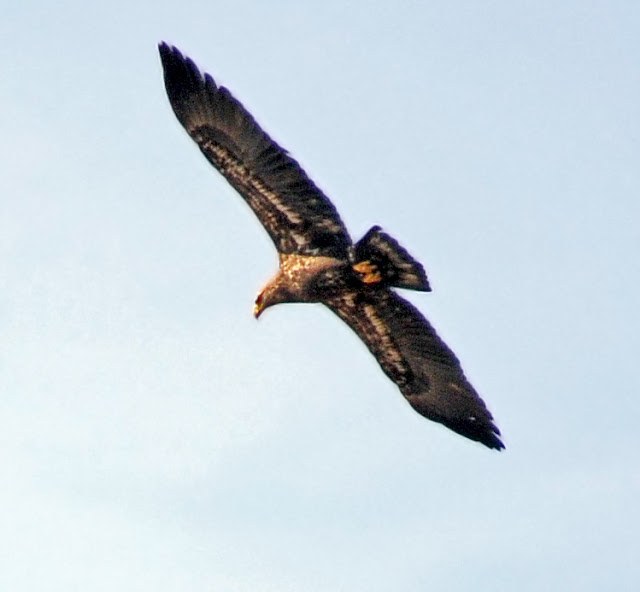Instead I saw a couple of American Tree Sparrows, a Field Sparrow, a Ring-necked Duck, many Common and Hooded Mergansers and flock after flock of honking Canada Geese that flew in for a day's stop-over. When I first arrived there were just three and when I left, several hundred of them had settled in the shallow water and on the sandbanks.
The Tree Sparrows are easily recognized by their bicolored bill.
Yesterday a pair of male Buffleheads on the West River:
Bufflehead is probably a translation of the Latin species name Bucephalus which also includes the Goldeneyes, meaning ox-head, in reference to their large head, compared to body size, and the steep forehead.
Yesterday I became all excited when I saw a large raptor circling overhead over the river. It looked like a Bald Eagle, since it was almost all dark. However when I studied my photos at home I had to concede that it was a juvenile Bald Eagle. It could have been a Bald Eagle if it didn't have the white on the underwings which I learned is never ever found in that species.
I hope the Long-tailed Ducks will stay around. I'll try again tomorrow.








I love the Bufflehead photos! I especially love the one taking off. I would dearly like to see one for myself!
ReplyDeleteThanks, Susan. I thought the bird was going to take off but it was actually only shaking itself, and then dropped back into the water.
ReplyDeleteExtinction was forever once but modern biologists are doing their best to unravel the mysteries of DNA coding and cloning so that extinct species may once day be able to be brought back into the world. Nevertheless until that time, extinction still represents a loss of both species and their genetic material.
ReplyDelete